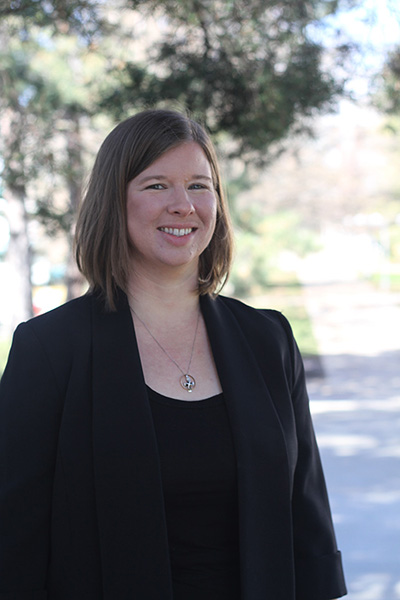
As the newest agricultural teacher educator at Washington State University, Anna Warner prepares the next generation of ag teachers, fostering the Northwest’s future leaders in farming, food, agriscience and business.
“From orchards to agribusiness, there’s a huge need for skilled, knowledgeable employees in agriculture,” said Warner, who starts July 1 as assistant professor at Pullman. “Agricultural educators help fill that gap.”
WSU agricultural education graduates don’t simply prepare future employees for the agricultural industry—they build agricultural literacy and help their communities realize the importance of farms, food production and consumer decisions, keeping those industries successful.
“As people become more removed from farm life, ag educators keep agricultural literacy alive,” Warner said. “A good ag teacher impacts not only the students who are going into an agricultural career, but the ones who aren’t. Each student becomes an educated consumer of agricultural products, and every student comes away with skills for life that make them more employable and more valuable to their community.”
Following tradition
Growing up on her family’s rural Pennsylvania farm, Warner learned many agricultural skills. She was shearing sheep, administering vaccinations, and raising her own pigs before she left high school.
At the same time, she was following another family tradition—the path of the educator.
“Education runs in the bloodlines of my family,” she said. “I always wanted to be a teacher.” She was thrilled by the subjects of her favorite instructors, and wanted to share them, too.
“I soon realized I could combine my passions for agriculture and education, and do them together,” said Warner. She became an agricultural educator—a high school teacher who introduces young people to the many disciplines that the farmer, field manager or business owner must master, from crop science to animal husbandry to mechanics and accounting.
After completing her undergraduate degree at West Virginia University, followed by a master’s degree at the University of Florida, Warner taught high school agriculture for six years in the state of Maryland. A few years later, she went back to school with a bigger goal in mind. Warner pursued her doctorate in agricultural teacher education, and began developing a research program to improve agricultural education.
“As a university professor, I knew I could impact my profession in a much bigger way,” she said. “By preparing great ag teachers, I can help far more students than I ever could affect in a single classroom.”
Ag for everyone
While Warner benefited from her experiences in her family’s pastures and barns, a growing number of students come into agricultural education who never grew up on a farm.
“Many of my students are not only learning how to be teachers, but also learning basic agricultural principles and skills,” Warner added. “It’s amazing to see those students finding success, and teaching lessons in their own classrooms that just a few years ago they knew nothing about. They’re here because they were inspired by their ag teachers.”
While she’ll meet all of her new students this fall, Warner has already been impressed by the student involvement on display during her hiring process at Washington State.
“They were part of my interview, they joined me for lunch, and I was amazed by the quality of their questions and the active role they took,” she said. “They knew exactly what they were looking for.”
Trained to lead
At WSU, ag-education students complete a rigorous professional development program to earn certification in the national Curriculum for Ag Science Education (CASE). Annually, students have the opportunity to attend the Washington and western-region National Associations of Ag Educators conferences, gaining more development experiences, such as learning how to manage classroom finances, run a mechanic’s shop, and find mentors for student agricultural projects.
Warner trains her students to go beyond the classroom, working through organizations like FFA to help students gain experience and confidence in disciplines as diverse as hydroponics, raising chickens, breeding new wheat varieties, or developing alternative energy.
“You’re not only making a difference in what your students learn, but you’re helping them develop as a person and become a good model for their own future students,” she said.
“Everything that drives me is based on my students,” Warner added. “That’s what motivates me to be a good teacher. And that’s what I hope motivates my students to become good ag teachers for their own students one day.”